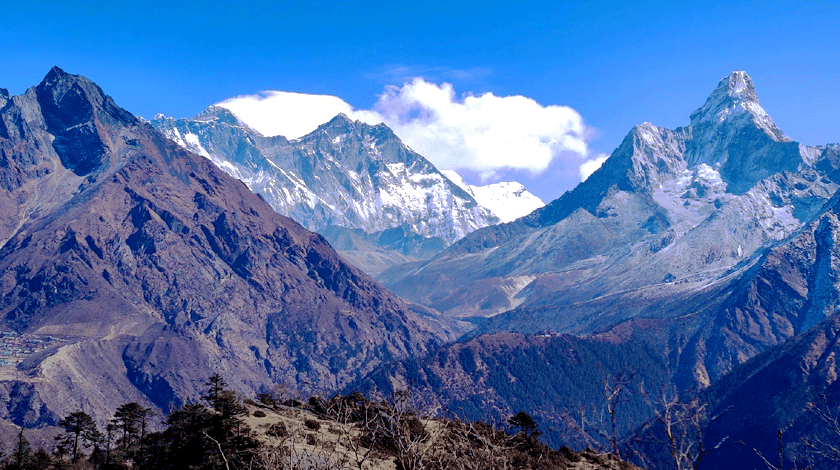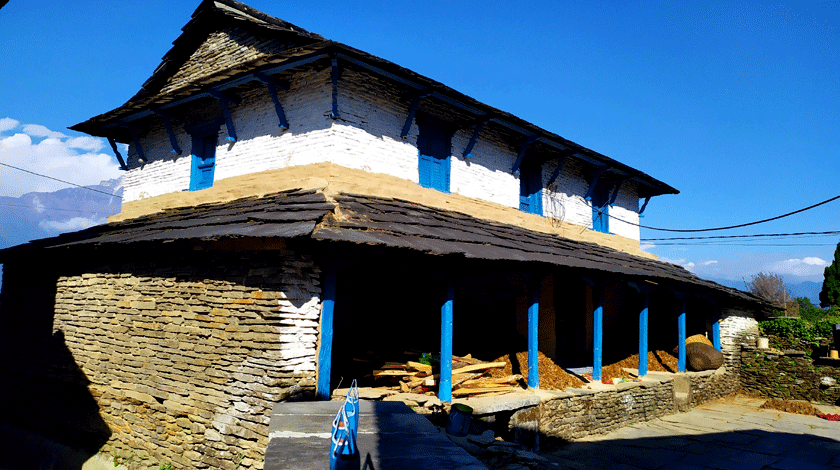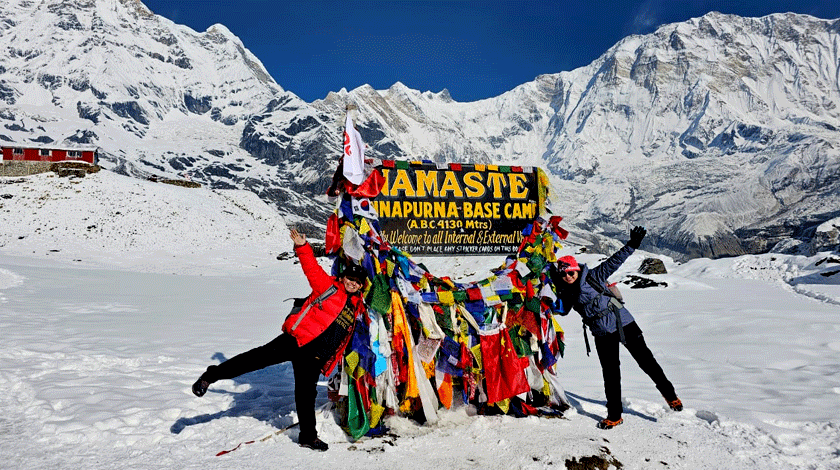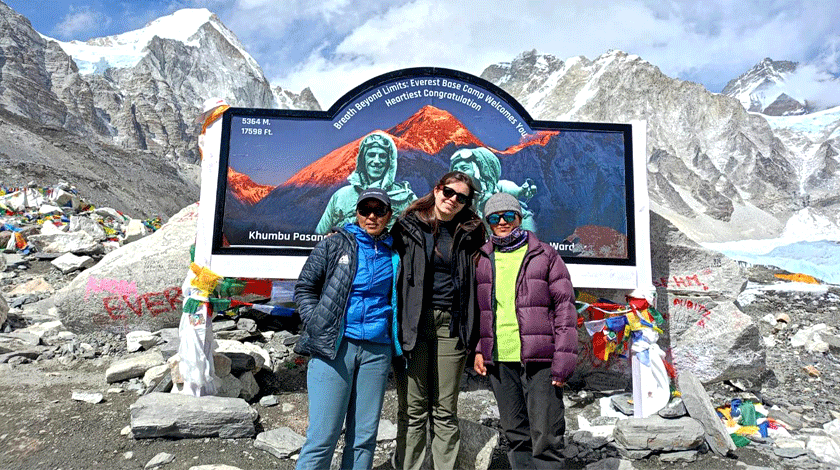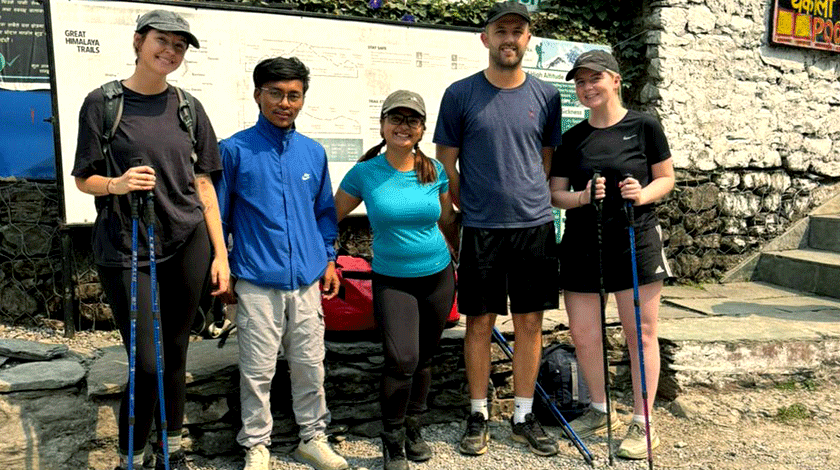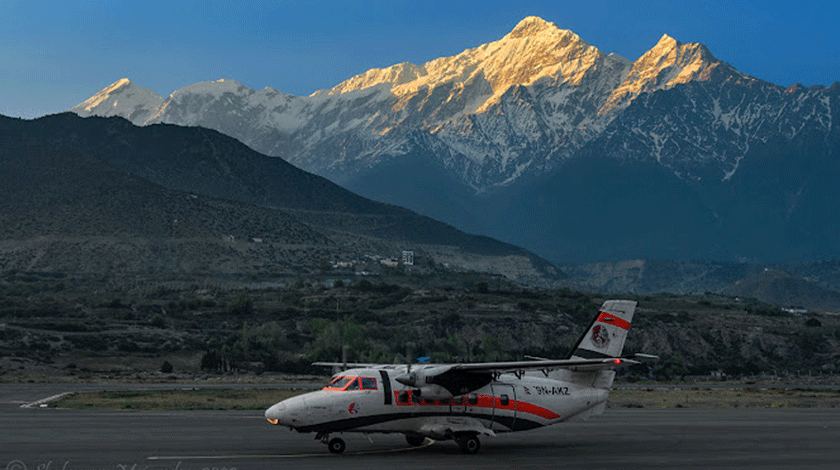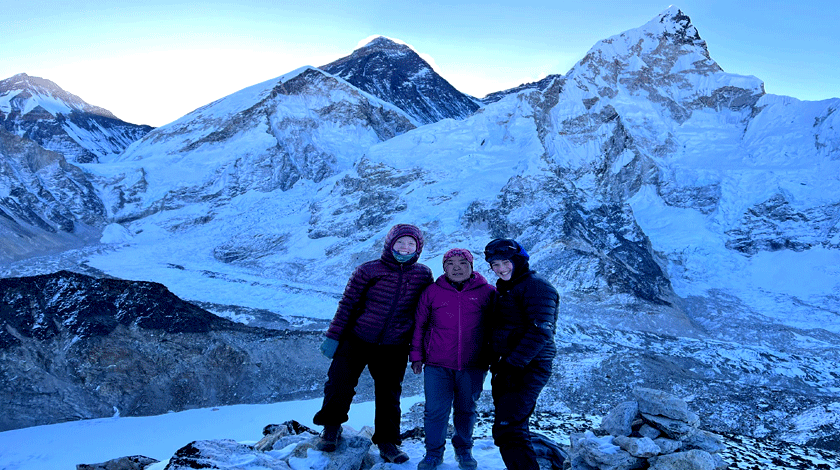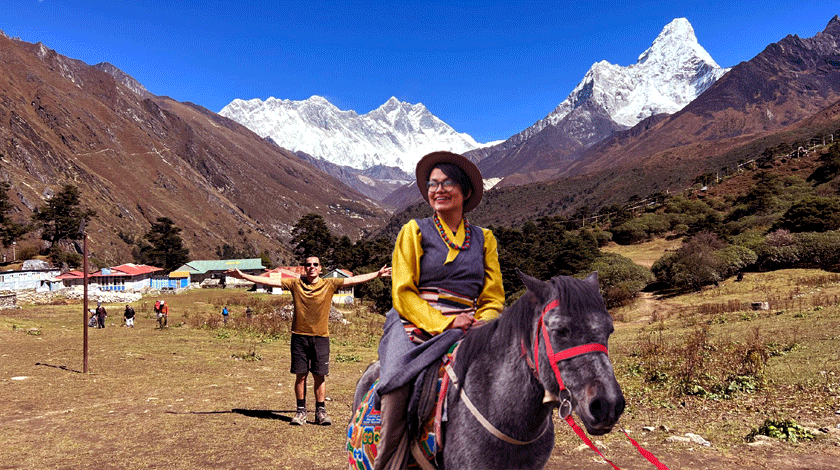Trek Leader
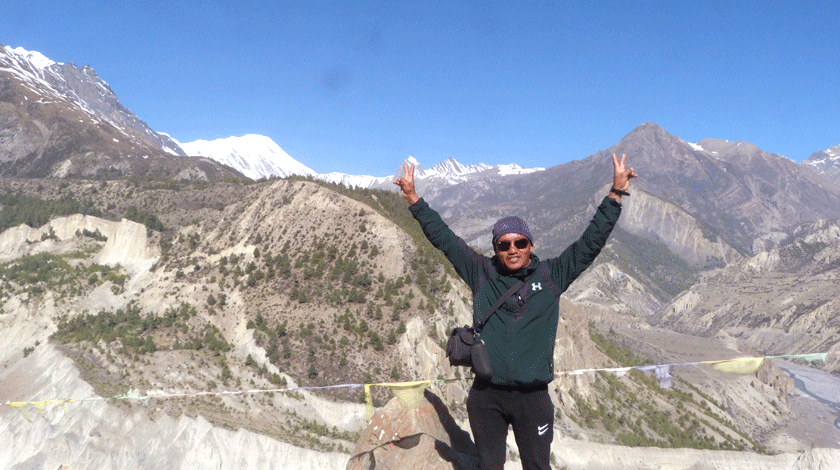
Expert guides must possess multiple qualities
Trek Leaders or Trekking Guides must have multiple qualities to become Expert guides, It is necessary for the trekking guide to possess numerous skills and knowledge that are necessary to lead the trek in an efficient and effective manner. Let your customers enjoy every moment and every step of their trek, it is their first time on the mountain for them. A one-time trek becomes a lifelong memory.
- Plan your trek/trip in advance
- A briefing must be conducted
- As per the schedule, perform all scheduled tasks on a daily basis
- Effective and efficient communication
- Assist those who need first aid
- Preventing trekking risks
- Providing rescue services
- Manage campsite/lodge tea house bookings.
- It is important to develop professionalism
- Trekking routes are important to know.
- It is imperative that you learn more about your clients’ feelings.
- Listen to them as a child
- Brief them Pack light
- Prepare before the briefing
- Describe your role as a guardian to them
- Reschedule on the spot based on the interest of the client
It is important to communicate in order to express oneself. Additionally, it meets the needs of the individual. In order to advance in a career, one must be able to communicate effectively. You can smooth your way and improve your relationships with others by having effective communication skills by understanding others and being understood by them
Having a charismatic personality:
Each trek typically has one main group leader and several assistant guides and porters, regardless of the size of the group. As opposed to city tours, trek leaders are responsible for ensuring the satisfaction of trekkers and ensuring the welfare of their support crew members. Clients will not only expect information, but also entertainment. The leader of a trekking group should possess an abundance of charisma, charm, and a great sense of humor.
It is imperative to have knowledge:
There is no doubt that charismatic leaders are great, but charm alone is not sufficient. A great trek leader knows what they are talking about, from facts and figures to the weather forecast for the next few days. Summarize the topics you are discussing and ask the clients if they wish to learn more. Do not bore them with long discussions about history, culture, nature, etc.
It is possible for a great trek leader to possess a great deal of knowledge, but they are not walking encyclopedias. DO NOT MAKE THINGS UP or LIE if you are asked about something you are not familiar with. The lie will be picked up by someone in the group. You will lose all credibility once they discover that you lied; it does not matter if you performed exceptionally well for 20 days on a 21-day trek; they will assume you lied to them all along. As soon as you learn more about that particular topic, inform them that you do not have the answer to that particular question. During your career, you will face many “curveballs”; evaluate how you handled them and consider how you can handle them better in the future.
Nowadays, it is easy to get a wireless connection on more commercial trials. There is always the option of searching online for answers.
Communicate effectively:
There is a possibility that you possess exceptional knowledge and outstanding charisma. Even so, if you lack the “people skills” to interact with the group, they will most likely feel as if they are listening to a pre-recorded presentation. A trekking vacation is very different from a regular bus tour. Your clients will spend extended periods of time outside their comfort zone, making them comfortable, chatting, and joking with them. Inquire as to how things are different where they come from compared to where they are now. Get them to tell you about themselves, what they do, what they enjoy, etc. New friends are often eager to share their passions and favorite things with each other. Ensure that all members of the group receive equal attention and are engaged in the discussion.
An excellent ability to tell stories:
Trekkers enjoy learning about cultures, religious practices, and the history of the region they are trekking in; they enjoy listening to stories. As a result, a great trek leader must be an excellent storyteller. Storytelling is not an easy task; it requires attention to timing, length, and many other factors
When and where you will tell a particular story, decide how long it should be, and practice it until you know it like the back of your hand.
It is important to remember that storytelling is not making things up – it is the same as lying.
An excellent sense of organization:
When you are leading a trek, timing is of the essence. You must be at specific locations at specific times; you must arrive at the lunch location on time and reach your campsite at the end of the day. There is a limit to the amount of time that can be spent in places for photos, admiration, etc. As a result, you must supervise the group by allowing them enough time to observe and absorb the surroundings, while gently reminding them where they need to be by the end of the day.
Check the given timings for each day of the hike; if some people take longer, add more time. In case most of the group is slower than regular trekkers, start earlier in the morning. Make those rest days into hiking days to compensate for their slowness (provided their acclimatization to altitude is not compromised).
A good sense of humor:
Occasionally cracking a joke can lighten the mood and make things more enjoyable. You can avoid upsetting group members by making jokes about them by making fun of yourself in order to make the group smile. A funny situation or lighthearted fact can also be incorporated into your stories to add humor.
Be sensitive to the following:
Not all members of the group have the same fitness level, and some may suffer from low self-esteem as a consequence of being the last person to arrive at the campsite each evening or suffering from diarrhea or other health problems. During situations such as these, an excellent trek leader must be sensitive, supportive, and encouraging. It is much easier to solve problems if you understand human psychology and are compassionate.
Adaptability is key:
You must be spontaneous in your role as a trekking guide. The weather can rapidly change, bridges may be washed away, landslides can block trails, and things can be different from the last time you trekked in this area. Therefore, it is imperative to be creative at improvisation, prepared, and flexible. Preparing for every situation will take time, but the most important thing is to learn from each experience.
A trekking tour usually includes raincoats, first aid kits, hiking poles, jackets, etc., which can be improvised to assist injured trekkers.
Knowing where you are going:
Although it may seem obvious, some trek leaders have difficulty understanding directions or panic in stressful situations. It is important that you are prepared for any conditions you may encounter while in the mountains, away from medical facilities, telephone networks, transportation, etc. In many cases, your trekkers rely on your local knowledge and language skills to help them navigate difficult situations. Furthermore, your clients will remember you for your ability to solve problems.


